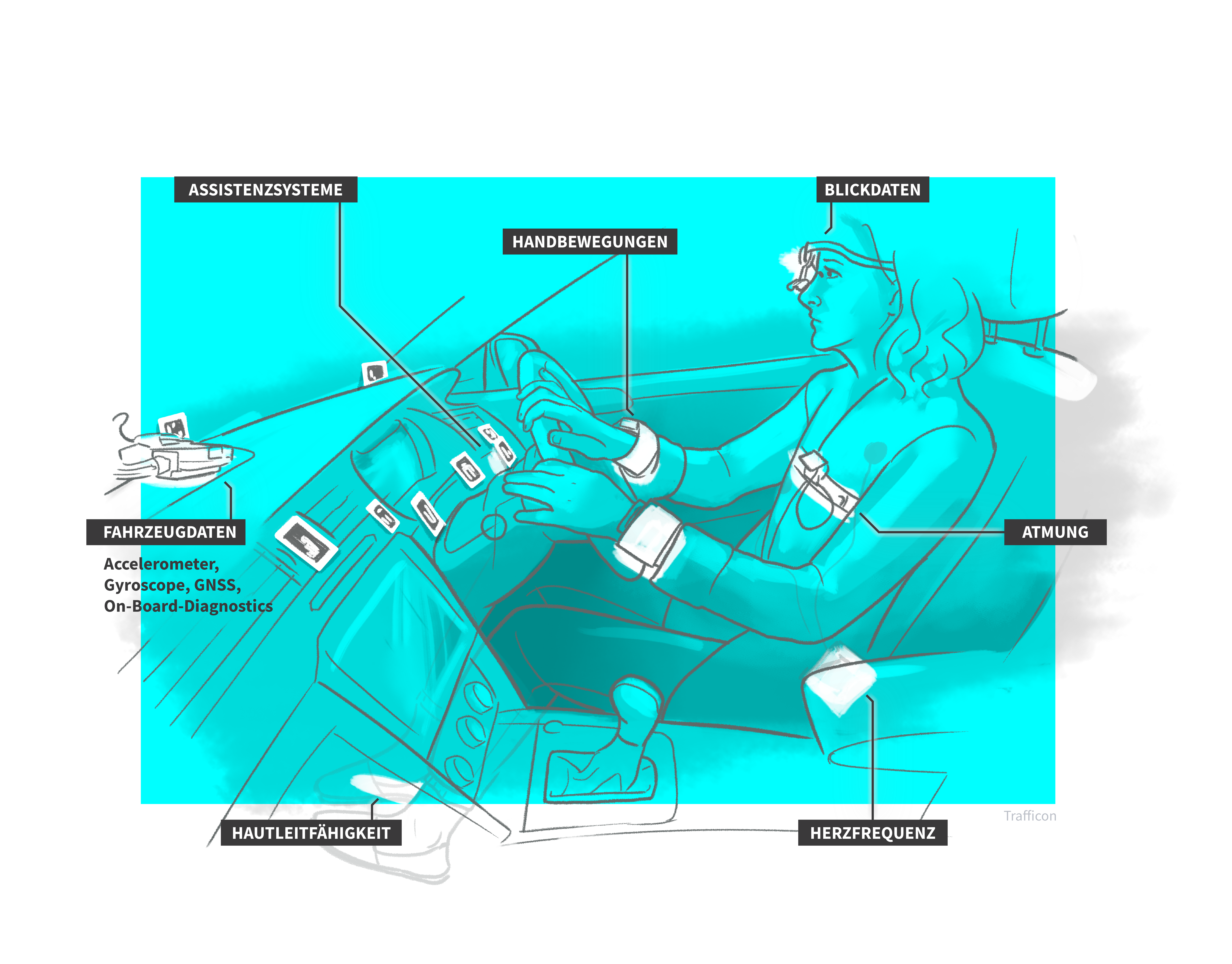Gender-specific patterns in the interaction with (partly) automated Driving functions in a naturalistic context
DATA ANALYTICS PLATTFORMThe individual mobility is becoming more and more automated, as modern assistance systems are trying to support drivers in increasingly complex driving tasks. Automated driving functions are currently developed in a technology-centric process; vehicle engineers automate whatever can be automated. The involvement of human end users in such development processes is very limited. Certainly in order to fully exploit the potential of automated driving functions - which are used voluntarily - and ultimately enhance road safety, the new technology must be truly and adequately used by drivers. However, this requires that the various user groups to gain sufficient technology acceptance and system trust.
Driving functions and assistance systems have been so far evaluated virtually as well as in simulator studies. Simulator studies often considered gender and diversity aspects very little in their sample selection process. In addition past research projects have not at all focused much on the involvement of non-professional subjects in field studies to better explore the interaction of people with (partially) automated driving functions (such as the ‘autopilot’ by Tesla Model S to name one example) in a naturalistic context. Accordingly, little knowledge has been gained so far about gender- and diversity-related differences in the interaction with (partly) automated driving functions. This bears the risk of ignoring people’s needs.
 Against this background, GENDrive seeks to initiate a paradigm shift, focusing specifically on a comprehensive, scientific field study to identify gender- and diversity-related differences in requirements, system use, perceptions, acceptance and trust in the context of (partially) automated driving functions (i.e. highly automated assistance systems) to achieve a higher level of scientific rigor. GENDrive is an industrial research project integrating data science and human factors. It is focused on gaining insights through the aggregation of objective and subjective data in order to identify and quantify gender- and diversity-specific differences in system interaction in a holistic way. Above all, the interlinked analysis of differently structured data sources (e.g., data on vehicle use, driving behavior, driving styles, traffic situation, or drivers) by applying advanced methods of data science like cluster analysis and machine learning offers an immense potential for gaining insights.
Against this background, GENDrive seeks to initiate a paradigm shift, focusing specifically on a comprehensive, scientific field study to identify gender- and diversity-related differences in requirements, system use, perceptions, acceptance and trust in the context of (partially) automated driving functions (i.e. highly automated assistance systems) to achieve a higher level of scientific rigor. GENDrive is an industrial research project integrating data science and human factors. It is focused on gaining insights through the aggregation of objective and subjective data in order to identify and quantify gender- and diversity-specific differences in system interaction in a holistic way. Above all, the interlinked analysis of differently structured data sources (e.g., data on vehicle use, driving behavior, driving styles, traffic situation, or drivers) by applying advanced methods of data science like cluster analysis and machine learning offers an immense potential for gaining insights.
Project results are
The project is financed by
the Federal Ministry of Austria | Transport Innovation and Technology
as part of FEMtech funding



Gernot Pucher | ue.nociffart@rehcup
Eva Westermeier
Manuel Güttler
Nico Pfau

Johannes Robier | moc.ipsuoy@reibor.sennahoj
Tamara Kober
Philipp Toblier
The project was presented at following occasions:
Planned publications: